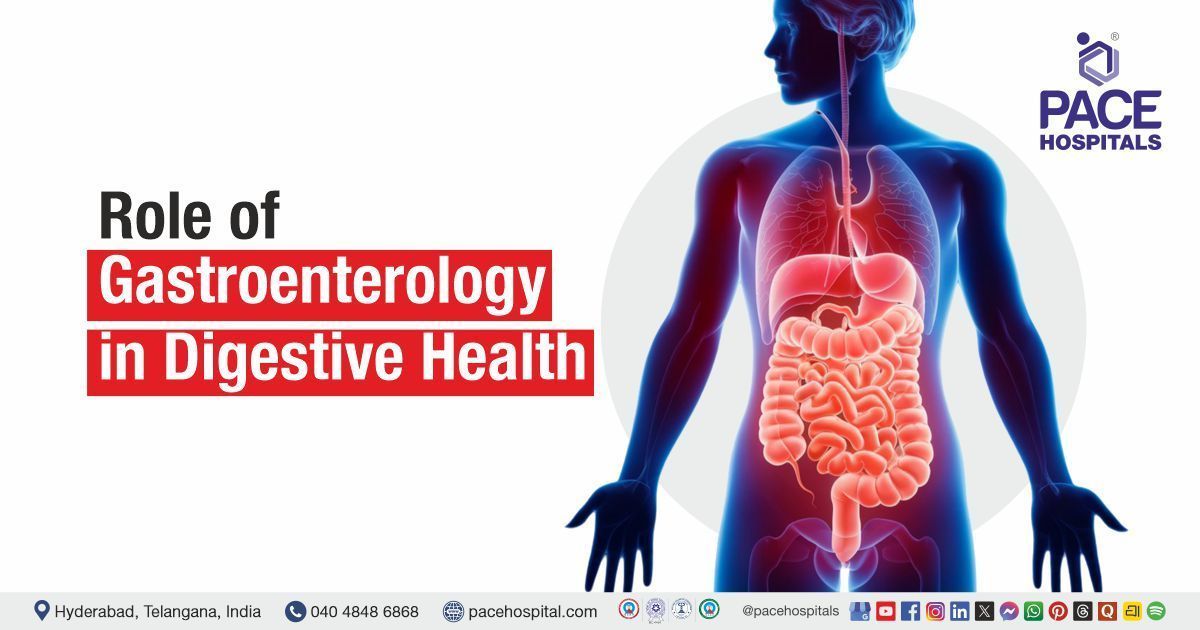Effective Management of Achalasia Cardia Type II with POEM Treatment in a Patient from Madhya Pradesh
PACE Hospitals
An adult male patient from Bhopal, Madhya Pradesh, presented with severe dysphagia to both liquids and solids, accompanied by postprandial vomiting. He was diagnosed with achalasia cardia type II based on esophageal manometry and underwent a successful Peroral Endoscopic Myotomy (POEM) procedure.
Chief complaints
A 69-year-old adult male from Bhopal, Madhya Pradesh, presented to
PACE Hospitals, Hyderabad, with chief complaints of severe difficulty in swallowing (dysphagia) for both liquids and solids. The patient was also found with vomiting episodes immediately after consuming food (Postprandial vomiting).
Medical history
The patient was a known case of
hypertension and had been on the medication Enalapril 5mg tablets to manage the hypertension. There was no other known history of
diabetes, cardiac diseases or other significant comorbidities.
Diagnosis
Upon physical examination and diagnostic tests done in the external laboratory setup, the patient was diagnosed with
Achalasia Cardia Type II, by our team of
gastroenterologists confirmed by esophageal manometry. The test showed increased lower esophageal sphincter (LES) pressure with impaired relaxation and panesophageal pressurization, typical of type II achalasia. These findings indicated esophageal motility dysfunction, causing difficulty in propelling food into the stomach.
Medical decision-making (MDM)
Given the patient’s clinical presentation and diagnosis, surgical intervention was deemed necessary to relieve the obstruction caused by the hypertonic lower esophageal sphincter.
A comprehensive preoperative assessment, including blood tests, imaging, cardiology clearance, and a pre-anesthesia checkup (PAC), confirmed the patient’s fitness for surgery. Informed consent was obtained after explaining the procedure, risks, benefits, and postoperative care.
Dr. Govind Verma, Interventional Gastroenterologist, Transplant Hepatologist, Pancreatologist and Endosonologist, along with
Dr. M Sudhir, affirmed that
Peroral Endoscopic Myotomy (POEM) would be the definitive treatment for Type II achalasia cardia due to its high success rate and minimally invasive nature, ensuring effective symptom relief and a quicker recovery.
Treatment
The treatment involved performing Peroral Endoscopic Myotomy (POEM), a minimally invasive endoscopic procedure. This technique involves creating a submucosal tunnel within the esophageal wall to access the lower esophageal sphincter. A precise myotomy was then performed on the circular muscle fibers, effectively relieving the obstruction caused by the hypertonic sphincter. The procedure was completed successfully without any intraoperative complications, ensuring optimal conditions for postoperative recovery.
Post-Surgical management
Post-surgery, the patient was kept Nil by Mouth (NBM) for two days to facilitate initial healing of the esophagus. On day 3, an oral Gastrograffin test was performed, which showed no signs of contrast extravasation or esophageal dilatation, confirming the success of the procedure.
The patient received various medications to support recovery, such as IV fluids to maintain hydration and electrolyte balance, antibiotics, and antifungals as prophylaxis, to prevent infections. Proton Pump Inhibitors (PPIs) were prescribed to reduce gastric acid secretion and protect the esophageal lining, and GI protectants and antipyretics were provided to manage any potential inflammation or fever. These measures ensured a smooth recovery and prevented postoperative complications.
Dietary restrictions
The patient was advised to follow a liquid diet for the first four days post-surgery to allow the esophagus time to heal. After this initial period, a semisolid diet was recommended for the next four days, gradually reintroducing more solid foods while monitoring for any discomfort.
Depending on individual tolerance and recovery progress, a normal diet could be resumed once the patient tolerates semisolid foods without issues.
Discharge notes
At the time of discharge, the patient was stable and showed significant improvement in symptoms, with no difficulty in tolerating a liquid diet.
Medications were prescribed to ensure continued recovery, such as antibiotics to prevent post-surgical infections, antifungals for fungal prophylaxis, Proton Pump Inhibitors (PPIs) and GI protectants to aid in esophageal healing, and antipyretics as needed to manage any fever or discomfort. These medications were intended to support the patient’s recovery while minimizing the risk of complications.
Follow-up instructions
The patient was instructed to report to the emergency ward immediately if any symptoms, such as fever, abdominal pain, or vomiting, occurred. Additionally, a follow-up with Dr. Govind Verma was arranged for one-month post-discharge in the outpatient department (OPD), with a prior appointment to ensure proper monitoring and assessment of recovery.
Treatment rationale of Achalasia cardia with POEM Procedure
Achalasia cardia is a rare motility disorder of the esophagus, characterized by impaired relaxation of the lower esophageal sphincter and loss of esophageal peristalsis. Type II achalasia, according to the Chicago Classification, is marked by panesophageal pressurization, which often results in severe dysphagia and regurgitation. This condition can significantly affect a patient’s ability to eat and swallow, leading to a reduced quality of life.
The underlying pathophysiology of achalasia involves the degeneration of ganglion cells in the myenteric plexus, which disrupts the normal function of the lower esophageal sphincter. This leads to sphincter dysfunction, causing food to accumulate in the esophagus, a condition known as esophageal stasis. Over time, long-standing achalasia can result in complications such as aspiration pneumonia, malnutrition, and an increased risk of esophageal cancer.
Share on
Request an appointment
Fill in the appointment form or call us instantly to book a confirmed appointment with our super specialist at 04048486868











